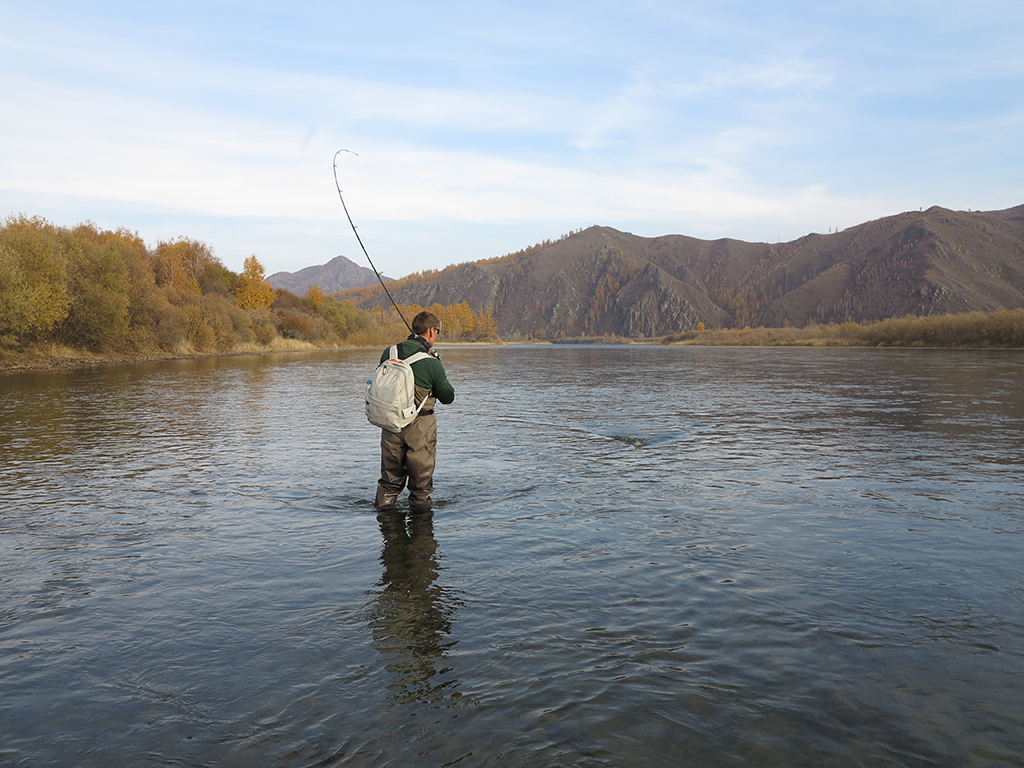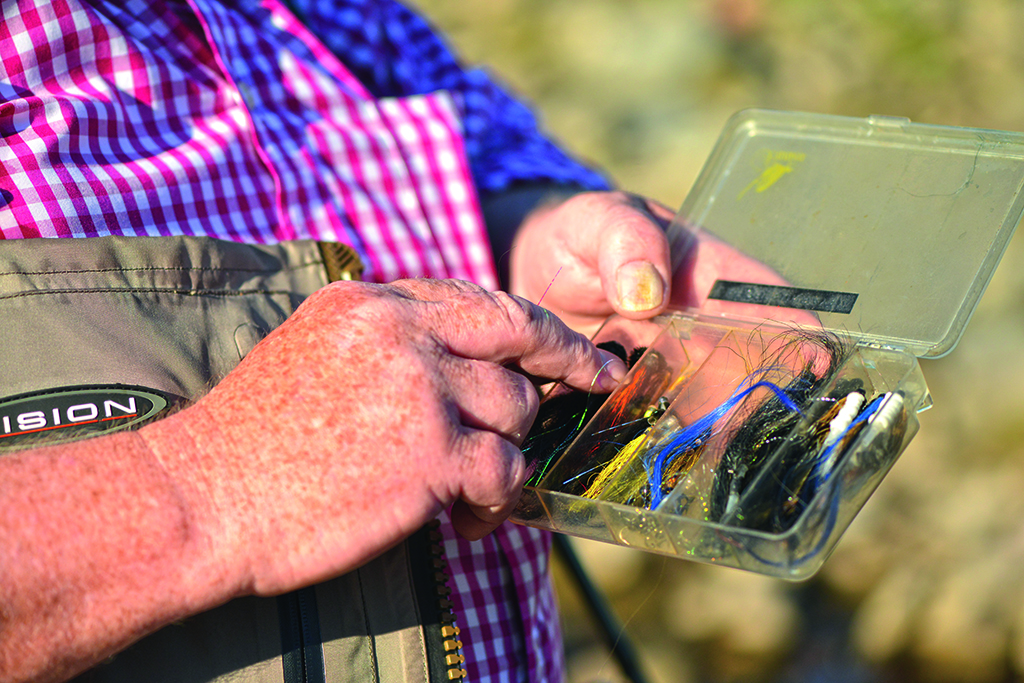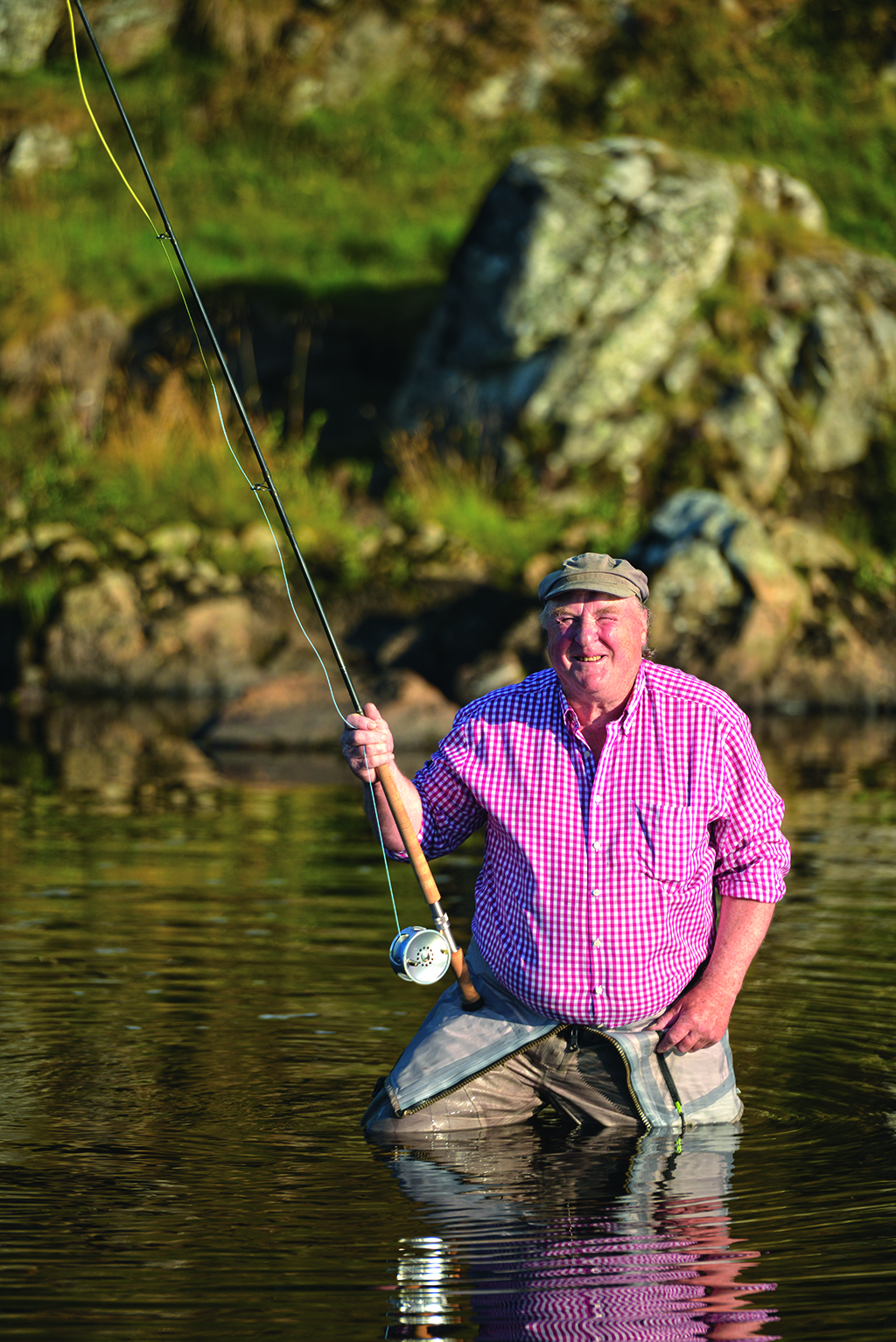
After fishing in Russia, there’s no place like home
Despite the large and plentiful salmon in Russia’s rivers, our writer claims nothing matches the Scottish fishing experience – even when you catch very little.
All my life I had wanted to fish in Russia. I had heard and read so much about it.
There were monster salmon there; there were undreamed-of amounts; the rivers teemed with fish just as Scotland used to 100 years ago.
And, at last, 20 years ago, I was invited to go with a party to the legendary Varzuga. All my fishing life I had cast my fly at Scottish salmon. I had fished the vastness of the Tay and the small intimacy of the Dionard. I loved Scotland for its beauty and its people and the feeling of peace which always surrounded me on its rivers. But the lure of Russia was enormous. It had a siren call which I could not resist.
On the Varzuga I caught masses of salmon; more in a day than I would catch in a year in Scotland. The parties I took there were mostly beginners and it was a wonderful place to teach them, not only how to cast a fly, but how to fish it as well. I told everyone who came with me that I would guarantee that they would catch a fish, no matter how inexperienced they were.

Russia’s Kola region may have geographical similarities to Sutherland, but the atmosphere is quite different.
And I was right. In those early days of Russian fishing, anglers were agog at the numbers and the ease with which they were caught. However, the countryside surrounding the Varzuga is not particularly beautiful. It is flat and endlessly covered in pine forest like many parts of Sweden, Norway and Finland. It has neither the rugged beauty of Scotland nor its soft colours and, despite all the myriad fish, I knew that I missed my home rivers.
At this point, the Northern rivers of the Kola Peninsula also opened up and we all realised that here was a chance of the legendary 50lb salmon. As luck would have it, Peter Power, a successful British businessman and avid angler, whom I have known most of my life, bought a 49-year lease on two million acres of Russia, which contained three of the greatest salmon rivers on earth: the Rynda, the Kharlovka and the Eastern Litza (plus a fourth river, the tiny but hugely productive Zolotaya).
I waited in trepidation for the much-desired summons to fish these rivers. At last the hoped-for phone call came – an invitation to spend a week fishing all three rivers with a view to taking parties out there in the future. I very nearly couldn’t make it as I was on the Varzuga the previous week, but in Russia they are used to dealing with huge distances so a helicopter picked me up and flew me in solitary splendour across the whole of the Kola Peninsula.
I had a map on my lap and it was fascinating to follow our journey until we arrived at the legendary Kharlovka home pool. I could not put up my rod quickly enough and was soon fishing. However, the Northern Rivers are nowhere near as easy or simple as the kindergarten Varzuga. They are fast and rock strewn with eddies and backwaters. The fly doesn’t swing in a standard pattern. Every inch of the way has to be planned. Does the line need a downstream or an upstream mend? Does the fly need to be slowed down or speeded up?

Mike’s choice of fly tying feathers (Photo: Angus Blackburn)
They are the thinking man’s salmon fishing and not at all easy to fish well.
In many ways the countryside of the Northern Kola is very similar to the wilderness of Sutherland. It is rugged and mountainous, but it doesn’t have the splendour of Scotland’s mountains nor the colours. The Northern Kola summer is so brief that it is all over before it has even begun and, of course, nowhere is there the purple glory of the heather.
However, when I first arrived I was not in the mood to compare the two; I merely wanted to fish. In the first day on the Kharlovka I caught two salmon of more than 20lbs. Both were bright silver and newly from the sea.
There is, however, one essential difference between the Kola and Scotland, and that is the atmosphere. There is a sullenness about Russia, which comes from centuries of oppression. At Murmansk Airport there is always a presence of soldiers with guns, and I always had the feeling that maybe, just maybe, there would be some sort of international incident and we fishermen would be held as hostages and not be able to fly home.
Of course it has never happened but, despite the wonderful catches, I always heaved a sigh of relief when the homeward-bound plane took off.
There is one other great difference between Caledonia and Russia, and that is that there are such wonderful places as pubs and restaurants in Scotland where, should the fisherman want an afternoon off from casting a fly, he can relax, play pool and forget about the uncooperative salmon. In Russia, it is non-stop fishing and there is literally nowhere else to go even if you were so inclined.

Mike Daunt enjoys fishing in Scotland’s waters (Photo: Angus Blackburn)
Two years ago, Peter sold the lease on his rivers to a Russian and it seemed a fitting time for me also to retire from Russia. Peter had been incredibly kind to me during the numerous years I had been there. He had allowed me to bring two of my sons out there and I was present when one of them repaid him by catching a 42lb salmon from the Eastern Litza. My youngest son, at the age of nine, also distinguished himself by catching his first salmon on a fly. It weighed almost 21lbs.
Thus I have returned to Scotland and recently, fishing that exquisite river, the Findhorn, I realised that I was supremely happy there. There was a tranquillity that I had never found in Russia. Sheep grazed in the pasture, mountains soared to a thunderous sky and there was a pub within walking distance.
Of course the river was desperate for water, but it would almost seem sacrilegious, and certainly breaking with tradition, for a Scottish river not to be showing its bones. Somehow it didn’t matter. I was completely content casting my optimistic fly into the peaty beauty of the water. And I was hopeful. Of course there was a taking fish on the next cast. Wasn’t that a head and tail by the big rock? (Or was it a small trout rising?)
I suddenly knew, without any doubt in my mind, that I didn’t want to go to Russia again. I had caught my many and huge salmon, and so had my sons, and I had had the supreme joy of fishing with my children on some of this exquisite planet’s most wonderful rivers.
But in Scotland I felt I had returned to my fishing home. Despite the rebellious and youthful murmurings of my boys who have been spoilt by the abundance of Russia, I knew that I was in a better place (and so will my sons when the hunting urge gives way to philosophy). So how many salmon did I catch on the Findhorn? Very few and it didn’t matter in the slightest bit.
(This feature was originally published in 2016)
TAGS

